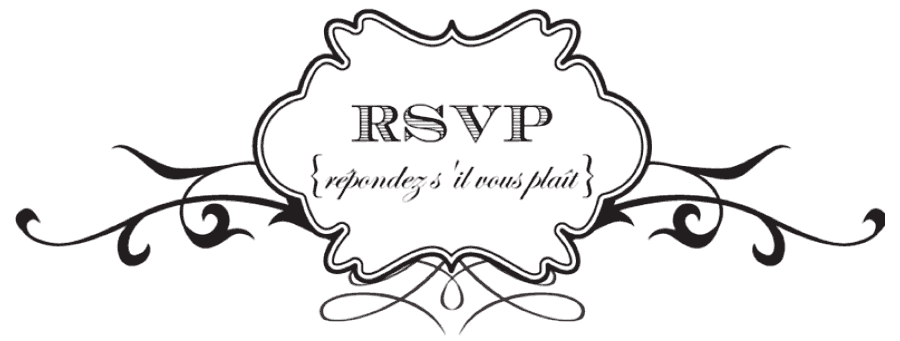RSVP and the etiquette of responding to invitations
Why Americans ask you in French to please respond to an invitation (répondez s’il vous plaît)

You may have noticed by now that when there is some kind of event, many Americans request that you send an RSVP, or in other words, a response. RSVP comes from répondez s’il vous plaît (“please respond” in French). Why is French used? This romance language was long considered the language of culture, whereas English has traditionally been the language of economics. Responding to an invitation is part of etiquette, or the rules of conduct, a word that was adopted into the 1700s in the English language (which has borrowed thousands of French words and adapted its own versions and pronunciations).
Nowadays, RSVP can be used as a verb (Please RSVP) or a noun (Please send your RSVP).
If someone asks you to RSVP (sometimes also written as R.S.V.P.) it means that you should respond if you plan to attend. This helps a host or organizer plan the event by knowing how much food to order, etc. If you can no longer attend, it is polite to let the host or event organizer know your change of plans. If you do not respond, it is assumed that you are not attending.
For some events, it has become a trend for the host or organizer to ask for “regrets only.” This means that you are assumed to be able to come and a reply is not necessary; only if you cannot attend should you notify the host or organizer. Examples for “regrets only” might be for an annual party or a wedding shower.
On the other hand, proper etiquette for a wedding invitation dictates that you should absolutely send an RSVP (either acceptance or regrets). Again, this is the polite thing to do so that your inviters can plan for the number of people attending.
Perhaps ironically, the French these days apparently request a response with prière de répondre instead of RSVP.

